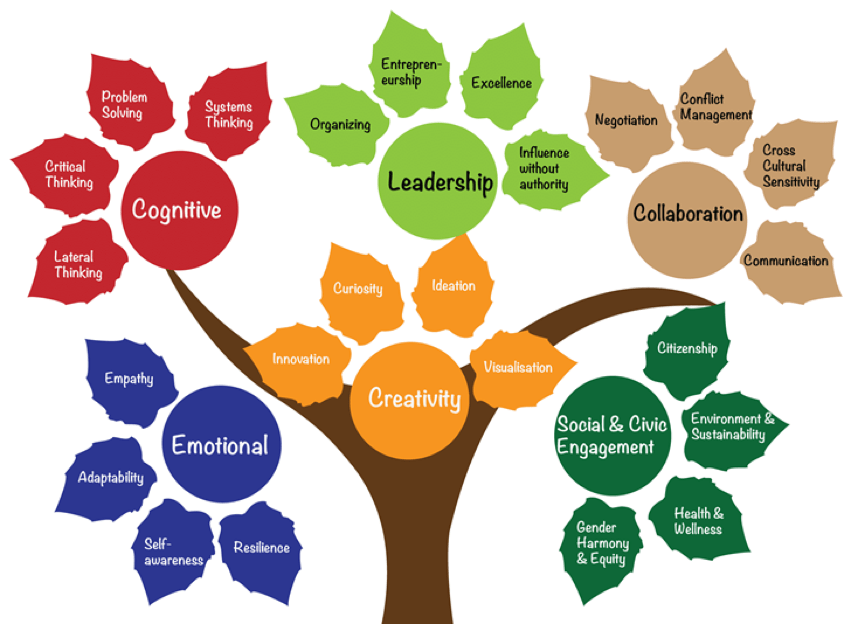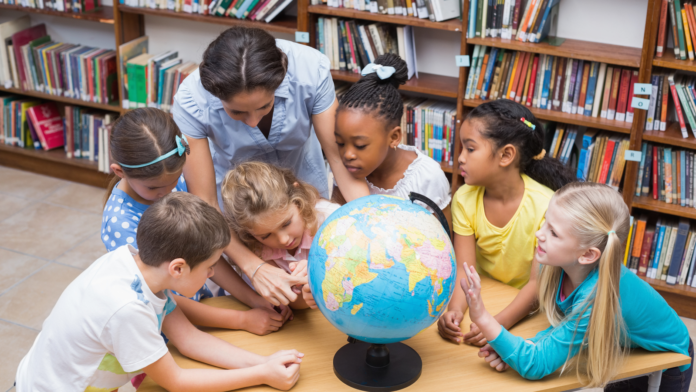Introduction
Early childhood education plays a crucial role in shaping the future of our children. It provides a solid foundation for their overall development, setting them up for success in various aspects of life. In this article, we will explore the numerous benefits of early childhood education and highlight why it is essential for every child to have access to quality early learning experiences.
Understanding Early Childhood Education
Early childhood education refers to the educational programs and activities that children engage in before entering formal schooling. It typically focuses on children between the ages of zero to five years, a critical period for brain development and learning. Early childhood education encompasses a wide range of experiences, including play-based learning, social interactions, and structured educational activities.

Cognitive Development
One of the primary benefits of early childhood education is its positive impact on cognitive development. During this period, children’s brains are highly receptive to learning and forming new connections. Quality early education programs provide stimulating environments that promote cognitive growth. Through age-appropriate activities and experiences, children develop essential skills such as problem-solving, critical thinking, memory retention, and decision-making.
Social and Emotional Development
Early childhood education also contributes significantly to a child’s social and emotional development. Interacting with peers and educators in a structured setting helps children learn essential social skills like sharing, taking turns, and cooperation. It provides a safe space for children to express their emotions and develop empathy and compassion. Through positive interactions and guidance, children learn to manage their feelings effectively and build healthy relationships with others.
Language and Communication Skills
Language and communication skills form a vital part of early childhood education. Exposure to language-rich environments helps children develop strong communication skills, vocabulary, and grammar. Educators employ various strategies to promote language development, such as storytelling, singing, and engaging in conversations. A strong foundation in language and communication enables children to express themselves articulately and enhances their overall academic abilities.
Enhanced Creativity and Imagination
Early childhood education nurtures children’s creativity and imagination. Play-based learning activities encourage them to explore their surroundings, experiment with different materials, and engage in imaginative play. These experiences stimulate their creative thinking, problem-solving skills, and innovation. By encouraging imagination and creativity, early education sets the stage for future innovation and fosters a lifelong love for the arts and self-expression.
Preparation for Formal Education
A significant advantage of early childhood education is that it prepares children for formal schooling. By providing a structured learning environment, children develop essential skills like following instructions, working in groups, and adapting to routines. They become familiar with the concept of learning, making the transition to formal education smoother and more successful.
Long-Term Academic Success
Studies have shown that children who participate in high-quality early childhood education programs tend to have better long-term academic outcomes. They demonstrate higher levels of school readiness, are more likely to graduate from high school, and are better equipped to pursue higher education. The foundation laid duringearly childhood education positively impacts their academic journey and sets them up for long-term success.
Improved Problem-Solving Abilities
Early childhood education promotes the development of problem-solving skills in children. Through hands-on activities and age-appropriate challenges, children learn to think critically and find solutions to problems. They develop the ability to analyze situations, identify patterns, and apply logical reasoning. These problem-solving skills are crucial for academic success and are transferable to real-life situations as children grow older.
Nurturing Positive Relationships
Early childhood education provides children with opportunities to interact with their peers and form positive relationships. Through collaborative activities and social play, children learn important social skills such as sharing, empathy, and cooperation. Building strong relationships at an early age fosters a sense of belonging and contributes to their emotional well-being.
Boosting Self-Confidence and Independence
Participating in early childhood education programs allows children to build self-confidence and develop independence. As they engage in various activities and overcome challenges, they gain a sense of achievement and belief in their abilities. Early education encourages them to take risks, make decisions, and become more self-reliant, laying the foundation for future personal growth and success.
Fostering a Love for Learning
Early childhood education plays a significant role in fostering a love for learning. By creating a positive and engaging learning environment, children develop a curiosity and enthusiasm for acquiring knowledge. They become active participants in their own learning journey, building a lifelong passion for learning and exploration.
Instilling Good Behavior and Values
Early childhood education is instrumental in instilling good behavior and values in children. Through consistent guidance and positive reinforcement, children learn important social norms, ethics, and values. They develop a sense of responsibility, respect for others, and a strong moral compass, shaping them into well-rounded individuals.
Closing the Achievement Gap
Quality early childhood education has the potential to reduce the achievement gap that exists between children from different socio-economic backgrounds. By providing equal access to high-quality education during the early years, children from disadvantaged backgrounds have a better chance of overcoming barriers and succeeding academically. Early education can level the playing field and create opportunities for all children to thrive.
Conclusion
Early childhood education is a powerful tool that sets the foundation for success in a child’s life. It promotes cognitive, social, emotional, and language development, while also fostering creativity, problem-solving abilities, and positive relationships. By nurturing a love for learning and instilling important values, early education prepares children for formal schooling and improves their long-term academic outcomes. Investing in quality early childhood education is an investment in the future of our children and society as a whole.
FAQs
1. What age group does early childhood education target?
Early childhood education typically targets children between the ages of zero to five years, before they enter formal schooling.
2. How does early childhood education contribute to cognitive development?
Early childhood education provides stimulating environments and activities that promote cognitive growth, including problem-solving, critical thinking, memory retention, and decision-making.
3. Can early childhood education help close the achievement gap?
Yes, high-quality early childhood education can help reduce the achievement gap by providing equal access to education and opportunities for all children, regardless of their socio-economic background.
4. What are the long-term benefits of early childhood education?
Long-term benefits of early childhood education include improved academic outcomes, higher graduation rates, and better preparation for higher education.
5. How does early childhood education foster creativity?
Early childhood education encourages imaginative play and hands-on activities, stimulating children’s creativity, problem-solving skills, and innovation.


